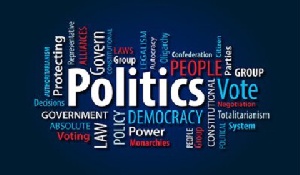 The women have been advised to use their influence to push national agenda
The women have been advised to use their influence to push national agenda
Young women in politics have been urged to use their intellectual capabilities to propel the development of the country.
Madam Juliana Abbeyquaye, the Eastern Regional Director of the Department of Gender, also asked people not to underrate young women who strive to take up leadership roles and engage in politics.
“Often time people turn to ask questions such as what can this young woman do when we vote for her to take up the leadership role,” she said.
Madam Abbeyquaye was speaking at the opening of the second session of the West Africa Young Women in Politics Forum in Accra by the Gender Centre for Empowering Development (GenCED) and National for Democracy, both non-governmental organisations.
The two-day forum brought together 30 participants, mostly young women, from Ghana, Nigeria, Niger, Liberia, Sierra Leone, Mali and the Gambia.
They are expected to discuss topics such as: Challenges of Young women participation in ECOWAS in the advent of COVID-19 Pandemic, Building gender sensitive structures within political parties to promote participation of young women, and Public Speaking.
Other topics are tackling gender based violence against young women in political parties and the role of culture and religion as barriers in political participation.
Madam Abbeyquaye called for more stakeholder involvement in sensitising the public against all forms of violence against women and the erroneous perception that young women in politics were for sexual objectification.
Ms Afia Adepa, a Member of the Loyal Ladies of the New Patriotic Party and a participant, said women should be included in decision making as they made excellent judgements.
Ms Rahinatu Issifu, Ablekumah South Constituency National Democratic Congress Deputy Treasurer, recalled how she braced all odds to attain a position in her party and urged women not give up in the struggle for leadership roles.
Ms Elorm Atakli, the Project Director of GenCED, said the forum was a buildup on the first session of Young Women in Politics held in March, 2019.
She said women had been marginalised and there was the need to build their capacity to improve on their numbers in politics.
Ms Atakli said GenCED, last year, built the capacity of nine candidates and two of the women won their seats.
She said it was important to educate women on fund raising for their campaigns, sensitize them on the various international and national laws that govern political participation, and raise their self-esteem.
She said challenges such as violence, insulting women in the media, religion and cultural barriers must be addressed to encourage more women to participate in politics.